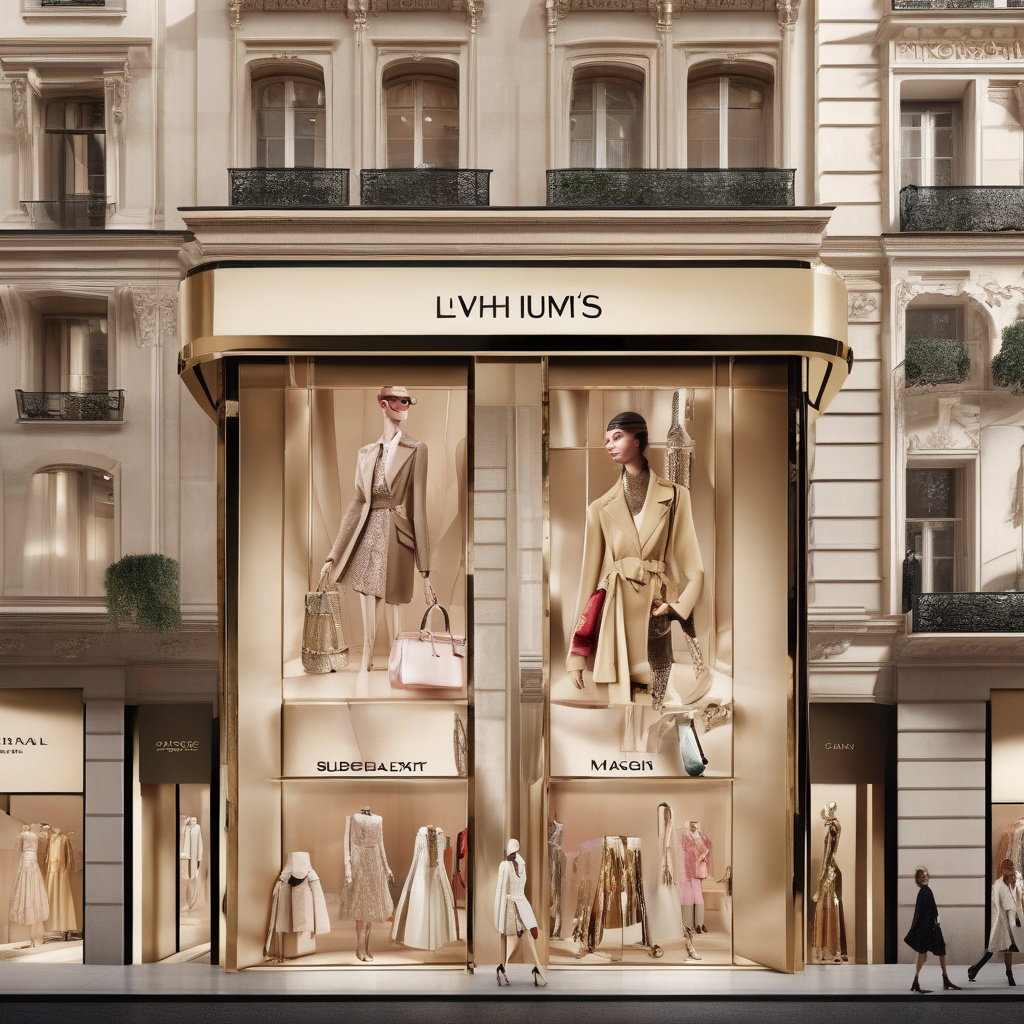LVMH Slide Signals No Quick End to Big Luxury’s Malaise
The luxury goods market is experiencing a significant shift, and LVMH Moët Hennessy Louis Vuitton, the world’s largest luxury goods conglomerate, is feeling the impact. A notable decline in sales within its core fashion and leather goods division, which includes iconic brands like Louis Vuitton and Dior, has raised concerns about the future of the luxury sector. This downturn is not merely a blip on the radar; it signals a more profound malaise that the industry may struggle to overcome in the near term.
In recent financial reporting, LVMH revealed a steep drop in sales for its fashion and leather goods division, which is often seen as a bellwether for the luxury market as a whole. The company reported a decline that surprised analysts and investors alike, suggesting that even the most revered luxury brands are not immune to changing consumer sentiments. This downturn is particularly troubling given the historical resilience of luxury brands, which have typically weathered economic storms better than other sectors.
The decline in LVMH’s sales can be attributed to several factors. Firstly, the global economic landscape is shifting. Inflation rates are rising in many countries, leading consumers to tighten their belts. Luxury goods, often considered non-essential, are among the first to be cut from household budgets during tough economic times. As consumers reassess their spending habits, even high-end brands that once thrived may find it challenging to maintain sales figures.
Moreover, the luxury market is facing increased scrutiny over sustainability and ethical sourcing. Brands that fail to address these issues may find themselves alienating a growing base of conscious consumers. For instance, younger shoppers, particularly Millennials and Gen Z, are increasingly prioritizing sustainability in their purchasing decisions. If luxury brands like Louis Vuitton and Dior do not adapt to these evolving consumer expectations, they risk losing relevance in a market that is becoming increasingly competitive.
Another critical factor to consider is the changing dynamics of international markets. With economic uncertainties and geopolitical tensions, especially in key markets like China, luxury brands are feeling the pinch. China has long been a major growth driver for luxury goods, but recent reports indicate a slowdown in consumer spending within the region. As the Chinese economy grapples with its own challenges, luxury brands that relied on this market for substantial revenue may find the road ahead particularly treacherous.
The impact of online retail and digital transformation cannot be overlooked either. While e-commerce has provided a lifeline for many retailers during the pandemic, luxury brands have historically lagged in this space, preferring the traditional in-store experience. However, as online shopping becomes the norm, luxury brands must enhance their digital presence to capture the attention of tech-savvy consumers. Failure to innovate in this area could exacerbate the current sales decline and hinder recovery efforts.
To illustrate the challenges LVMH and other luxury brands face, consider the recent performance of other key players in the sector. Brands like Gucci and Prada have also reported disappointing sales, indicating that LVMH’s struggles are not isolated. This collective downturn raises questions about the sustainability of the luxury market and whether it can return to its former glory.
As LVMH navigates these turbulent waters, it is essential for the company to implement strategic changes. Diversifying product offerings, enhancing sustainability efforts, and investing in e-commerce capabilities could provide the necessary boost to recover from this slump. Additionally, understanding and adapting to shifts in consumer behavior will be vital for maintaining brand loyalty and relevance.
In conclusion, the steep sales decline in LVMH’s fashion and leather goods division signals a challenging road ahead for the luxury sector. While the brand has weathered storms in the past, the current economic and social landscape presents unique challenges that require immediate attention. The luxury market may not see a quick recovery, and brands must adapt to the evolving preferences of consumers to remain competitive.
#LVMH #LuxuryMarket #FashionIndustry #ConsumerTrends #RetailChallenges
